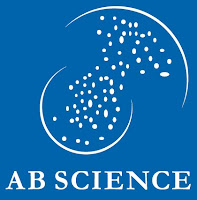 April 11th, 2011 - Patents support pipeline opportunities for PBT2 in AD and HD - Prana Biotechnology (ASX: PBT; NASDAQ: PRAN) announced that it has secured a key PBT2 patent in Japan. The Japanese Patent Office has granted a composition of matter patent for Prana’slead clinical asset, PBT2 and other selected 8-Hydroxyquinoline compounds in Japan. The patent entitled ‘8-Hydroxyquinoline derivatives’ also covers pharmaceutical compositions containing PBT2 and selected 8-hydroxyquinoline compounds and the use of the compounds for the treatment of Alzheimer’s Disease.
April 11th, 2011 - Patents support pipeline opportunities for PBT2 in AD and HD - Prana Biotechnology (ASX: PBT; NASDAQ: PRAN) announced that it has secured a key PBT2 patent in Japan. The Japanese Patent Office has granted a composition of matter patent for Prana’slead clinical asset, PBT2 and other selected 8-Hydroxyquinoline compounds in Japan. The patent entitled ‘8-Hydroxyquinoline derivatives’ also covers pharmaceutical compositions containing PBT2 and selected 8-hydroxyquinoline compounds and the use of the compounds for the treatment of Alzheimer’s Disease.Geoffrey Kempler, Prana’s Executive Chairman, said “This decision by the Japanese Officeto grant a claim to PBT2 completes a suite of core patent rights protecting this asset in key markets including the United States, Europe, Japan and Australia, further bolstering our commercialization plans in both Huntington’s and Alzheimer’s Disease”.
The Japanese patent has a twenty year term expiring on 16 July 2023, with a possible extension of term of up to 5 years under pharmaceutical protectionprovisions. Importantly there is no post-grant opposition process in Japan whereby third parties can register objections following this decision. In 2010, the company announced the grant of similar claims in Europe and the decision of the United States Patent Office to extend the term of the patent granted in the United States**.
PBT2 was selected from Prana’s Metal Protein Attenuating Compound (MPAC) library as its lead development compound in Alzheimer’s Disease in 2004... [PDF] Prana’s Press Release -
 19 April 2011 -
19 April 2011 -  Apr 18, 2011 -
Apr 18, 2011 -